This paper presents findings from a survey of business event participants conducted in February and March of 2023. The survey aims to explore changes in the frequency of travel, motivations for travel, and changes in travel behaviors. Results show promising growth in 2023 and that the desire to network with peers and destination appeal are the strongest factors influencing decisions to travel to business events.
Industry Insights
We have written thousands of articles about all aspects of hospitality, including valuations, investing, lending, operations, asset management, and much more.
The Transformation of Business Event Travel
This paper presents findings from a survey of business event participants conducted in February and March of 2023. The survey aims to explore changes in the frequency of travel, motivations for travel, and changes in travel behaviors. Results show promising growth in 2023 and that the desire to network with peers and destination appeal are the strongest factors influencing decisions to travel to business events.
Dallas Hotel Development: A Success Story Amid the Pandemic Recovery
Everything is bigger in Texas, even the post-pandemic recovery. Hotel metrics are showing strong improvements, and convention demand should be further bolstered in the future by a new convention facility. As a result, new hotel construction is again vibrant across the Metroplex after a temporary slowdown during the pandemic.
2022 European Hotel Transactions
HVS discusses the main hotel transactions that took place in 2022 and looks at the trends in single-asset and portfolio transactions over the years.
Boise's Rise: Small Big City in the Convention Landscape
In 2022, Boise's convention industry flourished thanks to expanded Boise Airport routes. Despite lacking a large convention hotel, Boise hotels enjoyed a remarkable rise in RevPAR in 2022, with Downtown hotels surpassing pre-pandemic levels. Furthermore, Micron Technology's expansion and the city's growth in tech and commercial development bode well for Boise's economic future.
Portsmouth, NH Shakes off Pandemic-Era Rust & Shows Promise for Future
Situated midway between Boston and Portland, picturesque Portsmouth features a waterfront downtown with a growing hotel market. This article serves as a primer on the market’s history, recent performance, and outlook.
The Minneapolis-St. Paul MSA: A Lagging Recovery
Unlike other major markets in the U.S., the Twin Cities metro area has struggled to bounce back from the pandemic, negative safety perceptions, and the addition of new hotels. However, positive marketing campaigns, publicity from national sporting events, a strong convention outlook, and the potential for hosting the World Expo in 2027 should support a rebound for this lodging market.
Hotel Conversions to Residential Use Heat Up
As economy and budget hotels are nearing the end of their economic life, some properties are finding new capital for renovations from buyers seeking to convert properties to residential use. In this article, we provide a sample list of hotels that have gone through this metamorphosis.
Nashville RevPAR Growth Continues Despite Supply Increases
This article provides a brief update on the state of Nashville’s lodging market as of April 2023.
Destination Los Angeles: A Look at the Future of the Hotel Market
Los Angeles, the entertainment capital of the world, boasts a thriving tourism industry that draws millions of visitors every year. In this article, we will pinpoint the trends, innovations, upcoming events, and challenges that are shaping the future of the Los Angeles hotel industry.
Recent Lodging Trends and Outlook for Chicago, Illinois
Although supply growth has slowed in Chicago, it remains one of the most vibrant and active lodging markets in the United States. Recovery is anticipated to continue as business travel confidence builds further and occupied office space in the downtown market increases.
Industry Insights
We have written thousands of articles about all aspects of hospitality, including valuations, investing, lending, operations, asset management, and much more.
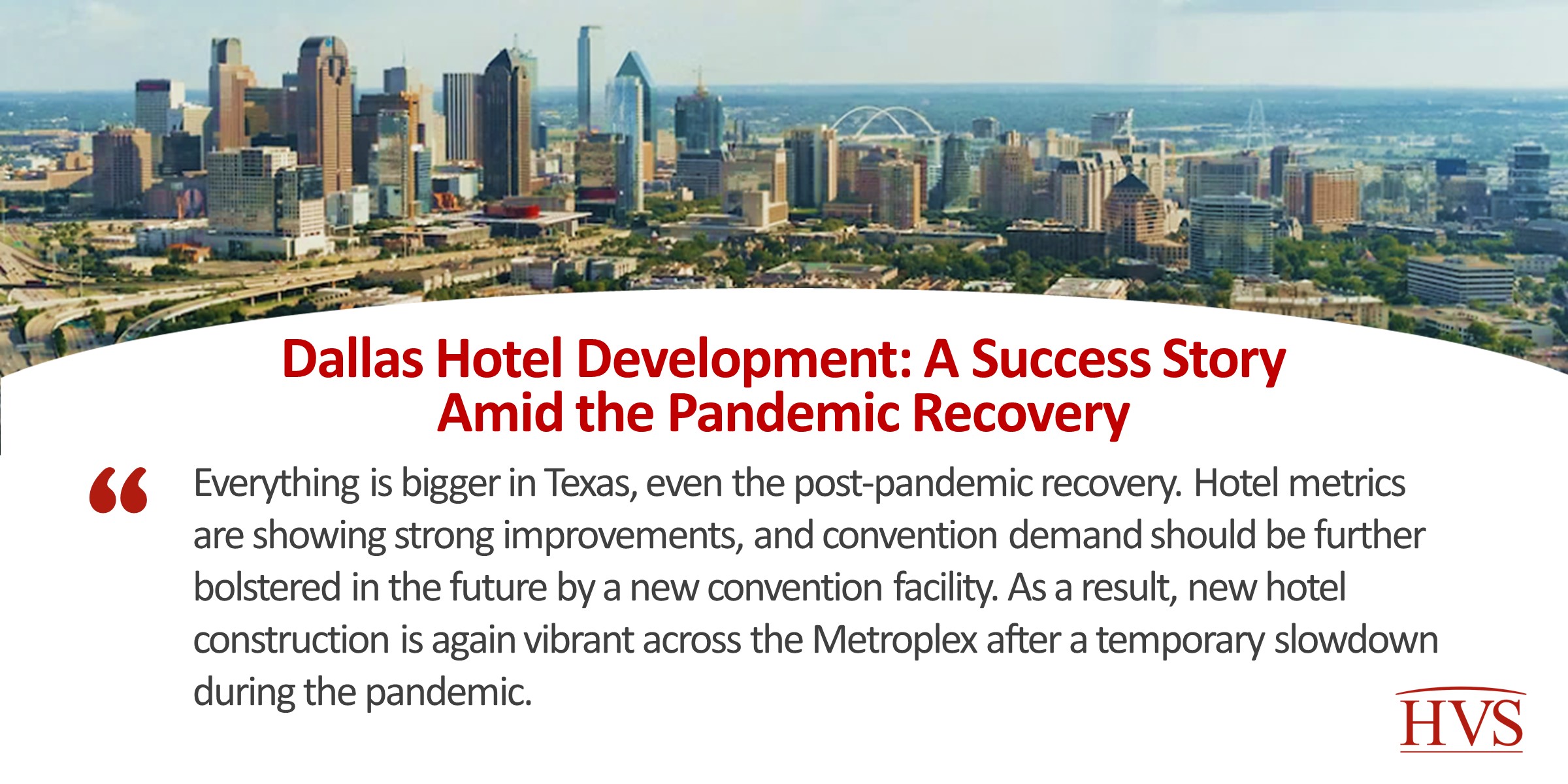
Everything is bigger in Texas, even the post-pandemic recovery. Hotel metrics are showing strong improvements, and convention demand should be further bolstered in the future by a new convention facility. As a result, new hotel construction is again vibrant across the Metroplex after a temporary slowdown during the pandemic.
HVS discusses the main hotel transactions that took place in 2022 and looks at the trends in single-asset and portfolio transactions over the years.
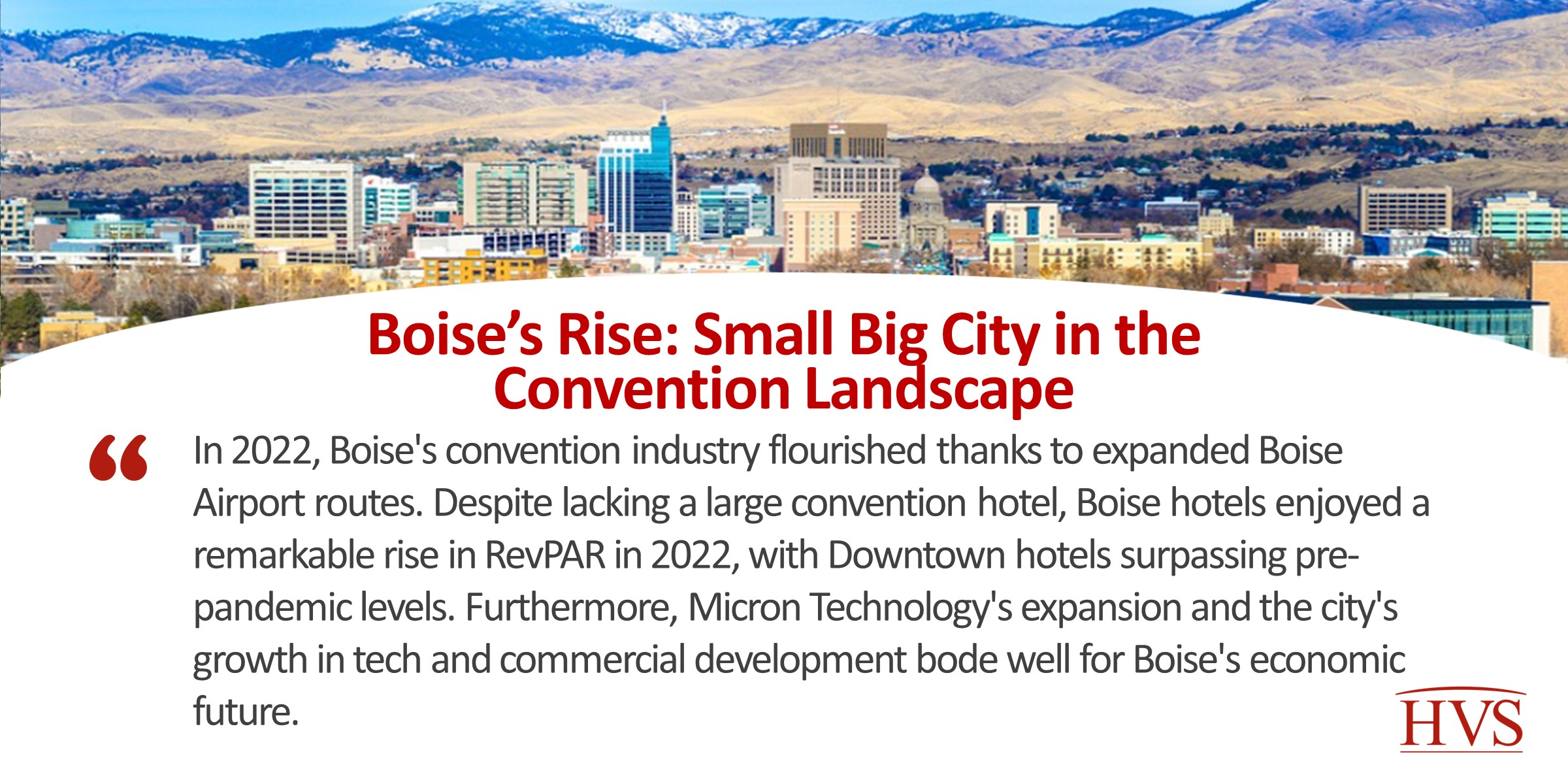
In 2022, Boise's convention industry flourished thanks to expanded Boise Airport routes. Despite lacking a large convention hotel, Boise hotels enjoyed a remarkable rise in RevPAR in 2022, with Downtown hotels surpassing pre-pandemic levels. Furthermore, Micron Technology's expansion and the city's growth in tech and commercial development bode well for Boise's economic future.
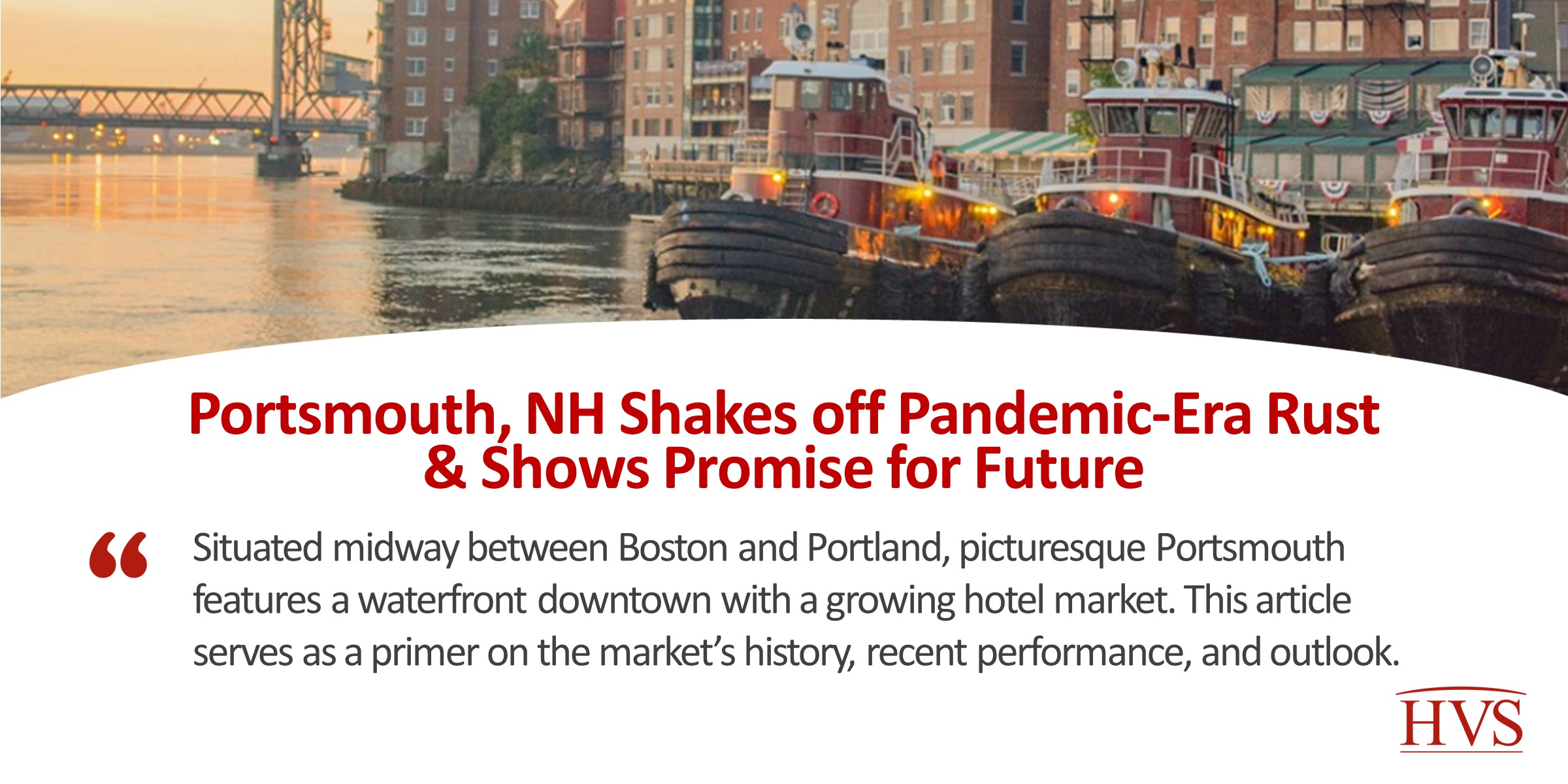
Situated midway between Boston and Portland, picturesque Portsmouth features a waterfront downtown with a growing hotel market. This article serves as a primer on the market’s history, recent performance, and outlook.
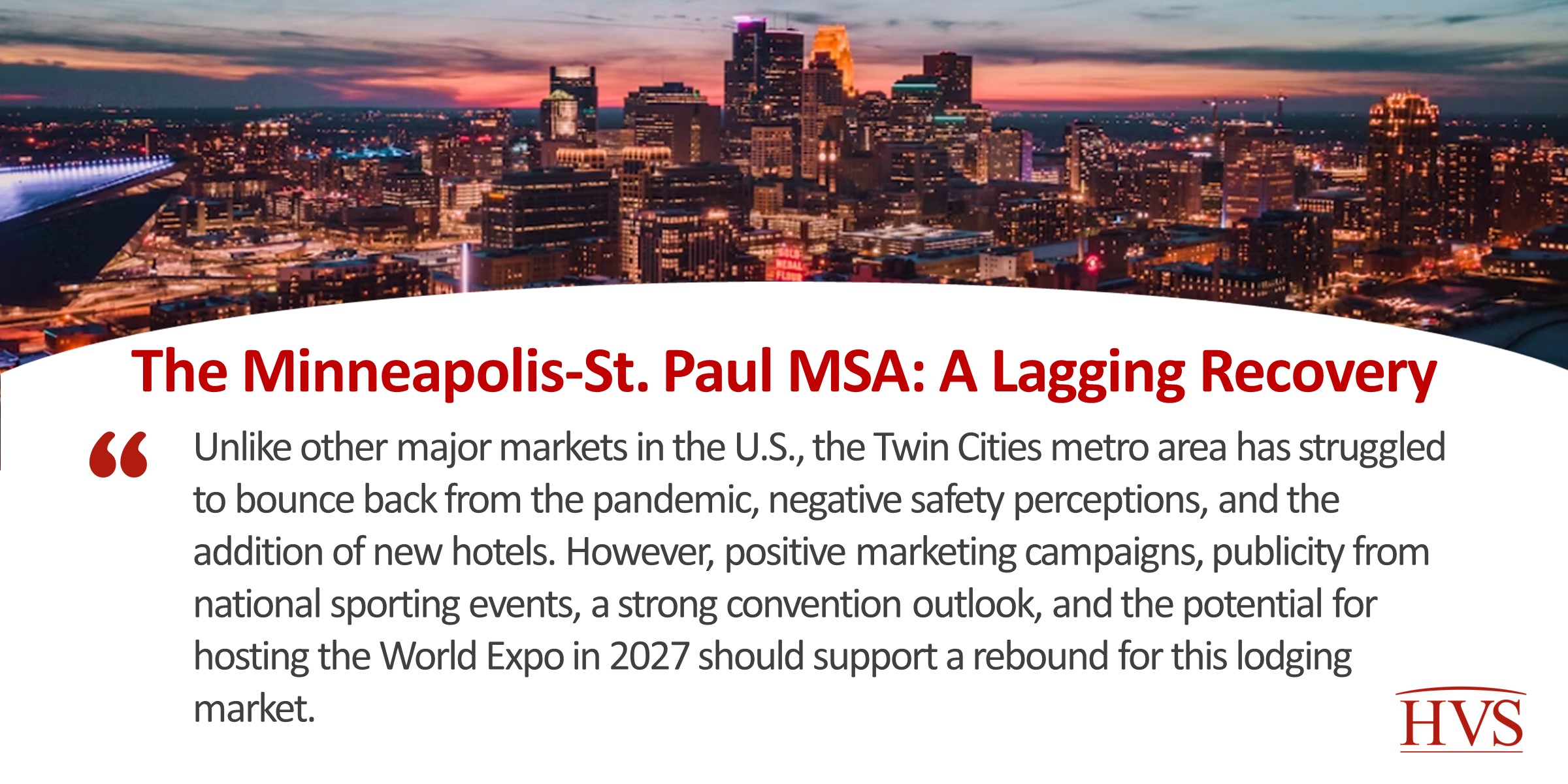
Unlike other major markets in the U.S., the Twin Cities metro area has struggled to bounce back from the pandemic, negative safety perceptions, and the addition of new hotels. However, positive marketing campaigns, publicity from national sporting events, a strong convention outlook, and the potential for hosting the World Expo in 2027 should support a rebound for this lodging market.
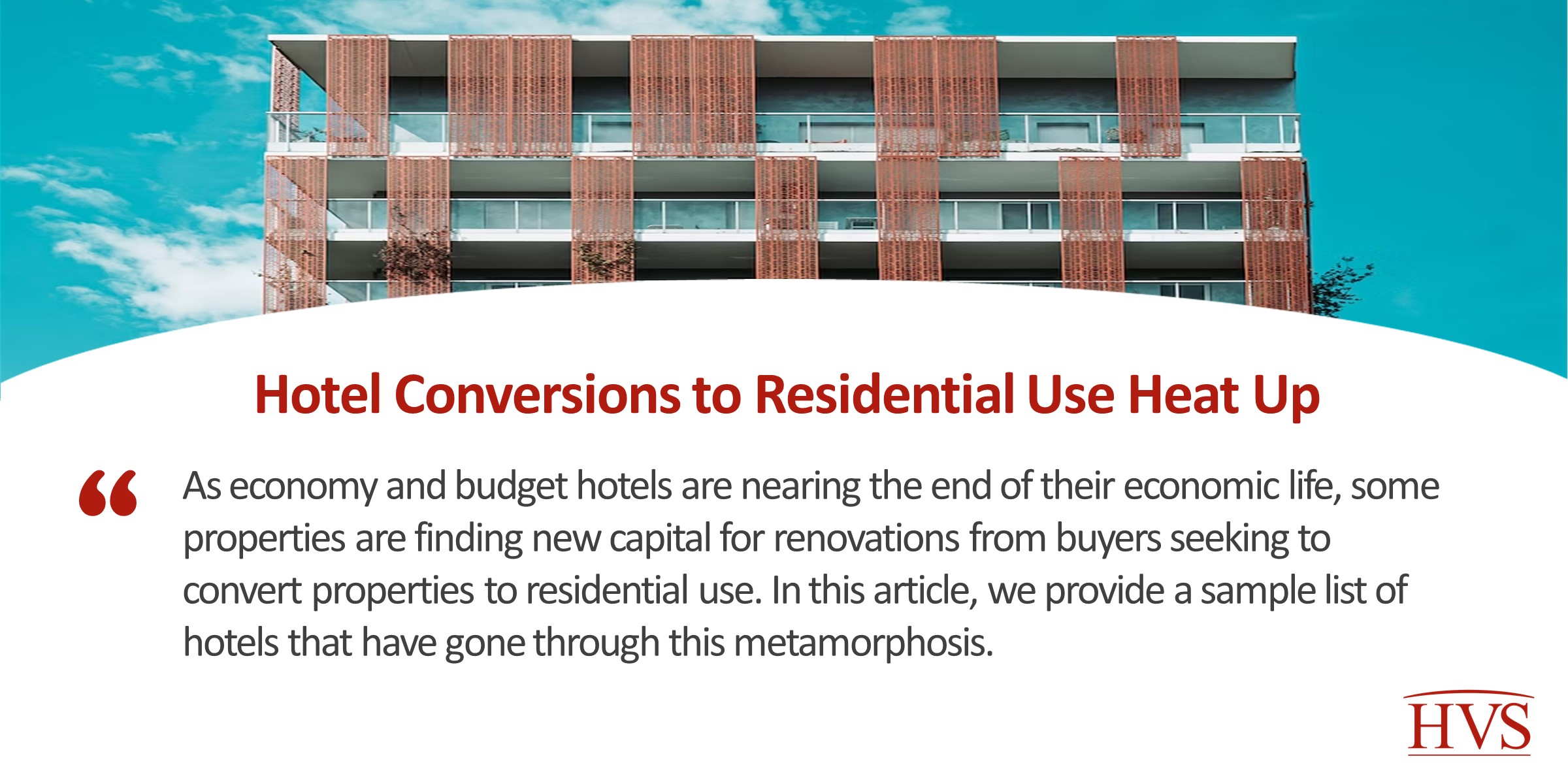
As economy and budget hotels are nearing the end of their economic life, some properties are finding new capital for renovations from buyers seeking to convert properties to residential use. In this article, we provide a sample list of hotels that have gone through this metamorphosis.
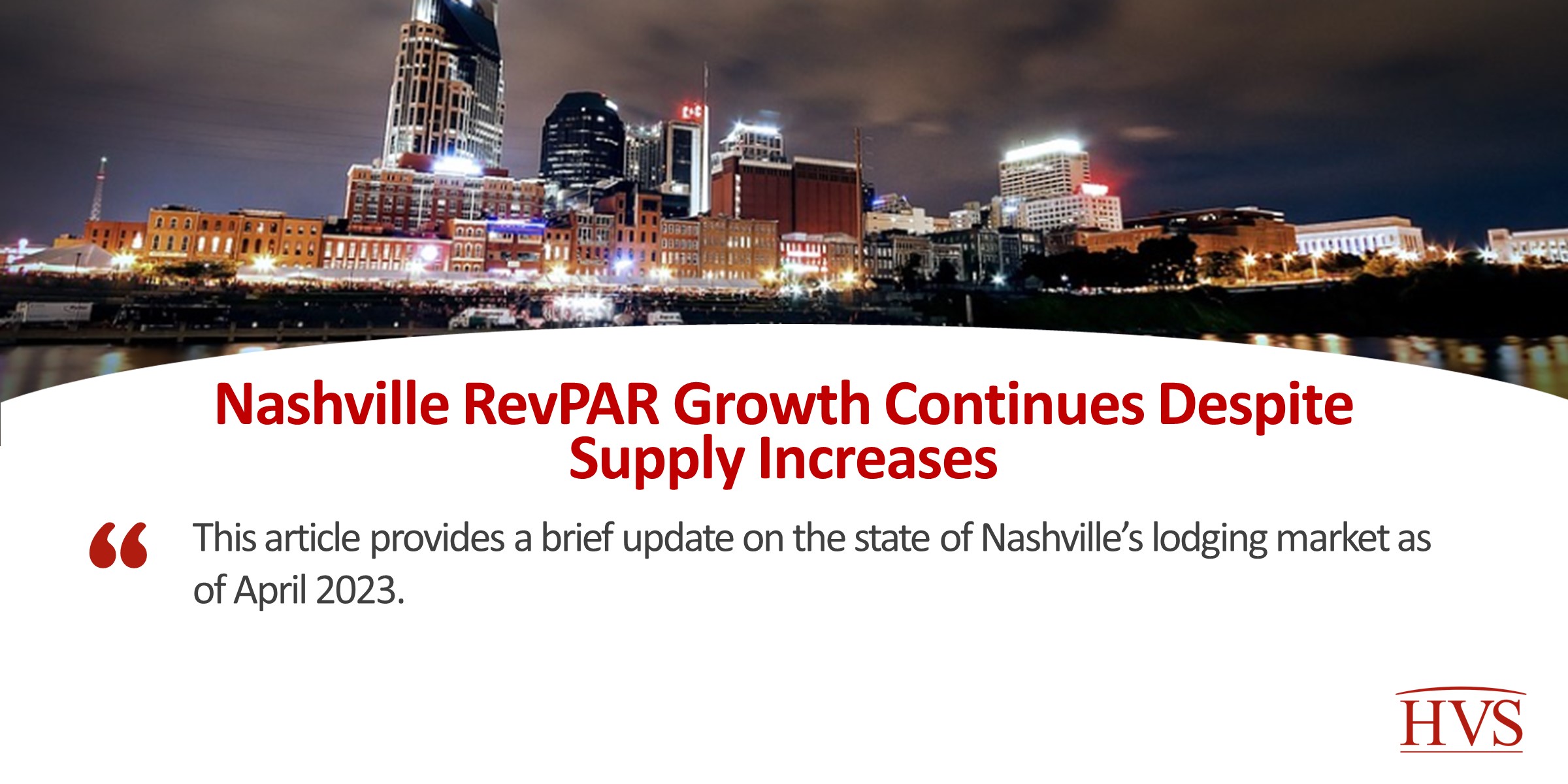
This article provides a brief update on the state of Nashville’s lodging market as of April 2023.
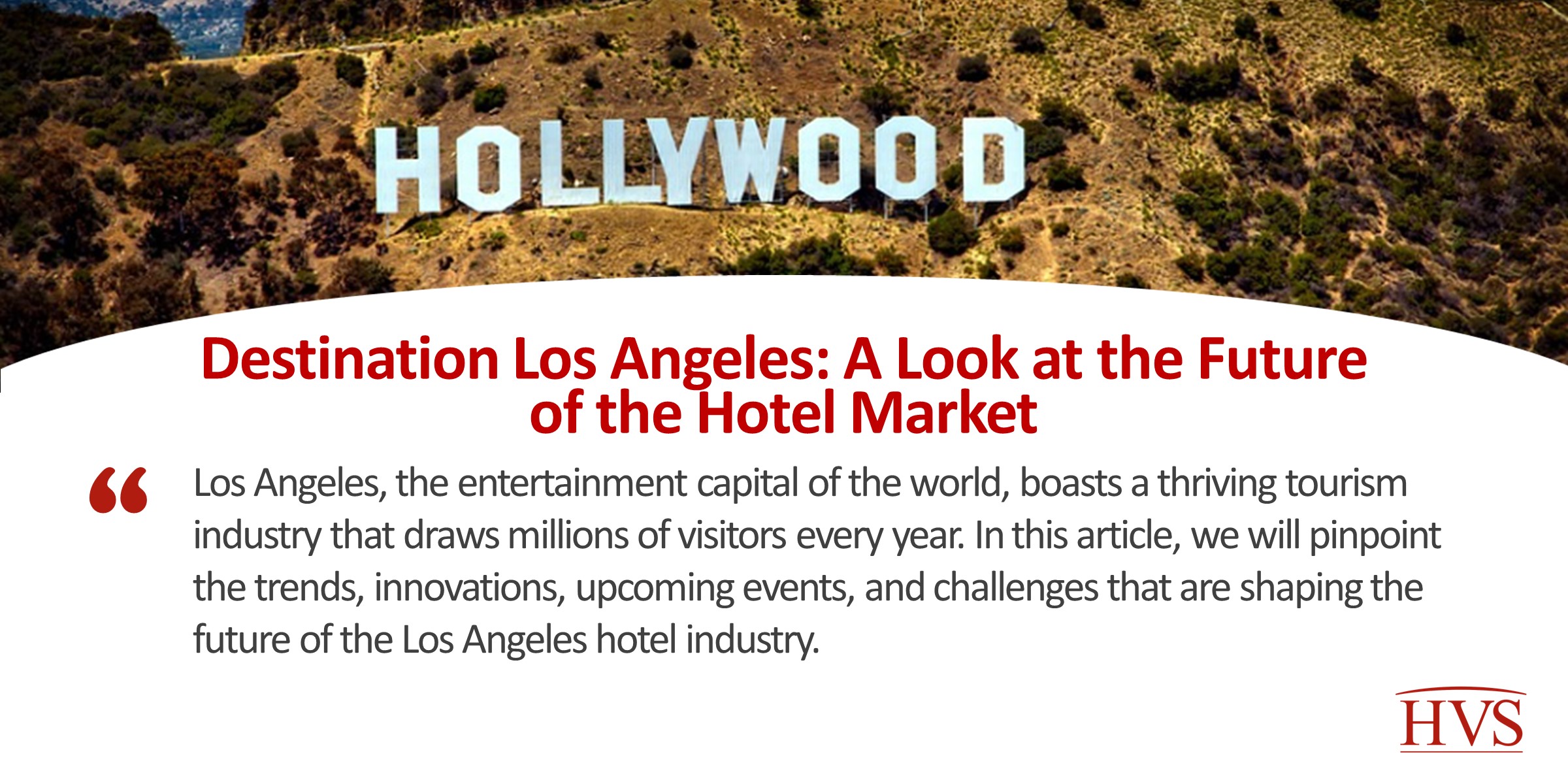
Los Angeles, the entertainment capital of the world, boasts a thriving tourism industry that draws millions of visitors every year. In this article, we will pinpoint the trends, innovations, upcoming events, and challenges that are shaping the future of the Los Angeles hotel industry.
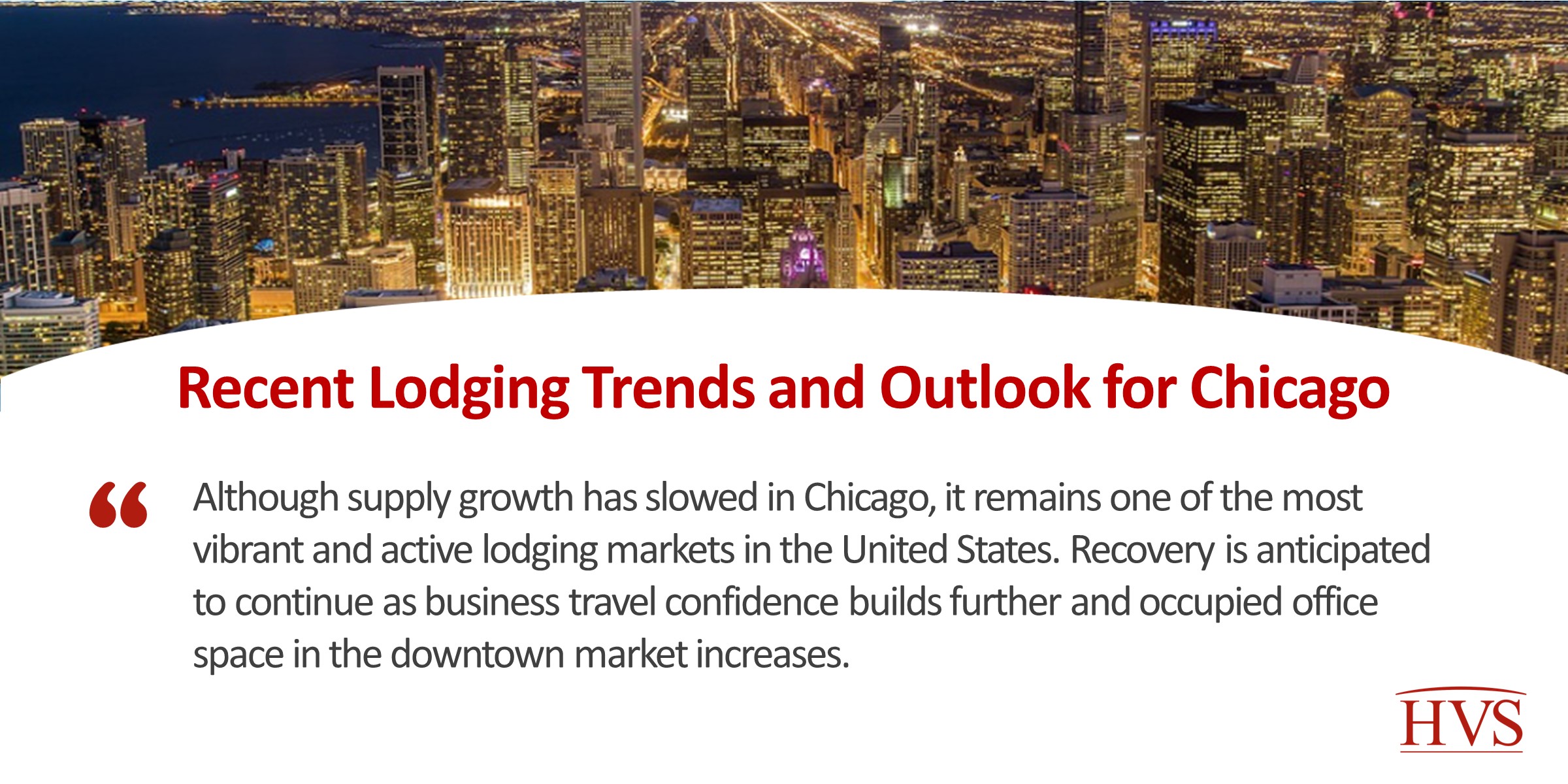
Although supply growth has slowed in Chicago, it remains one of the most vibrant and active lodging markets in the United States. Recovery is anticipated to continue as business travel confidence builds further and occupied office space in the downtown market increases.

Robust demand in urban centers continues to drive Canadian hotel values despite high interest rate environment.